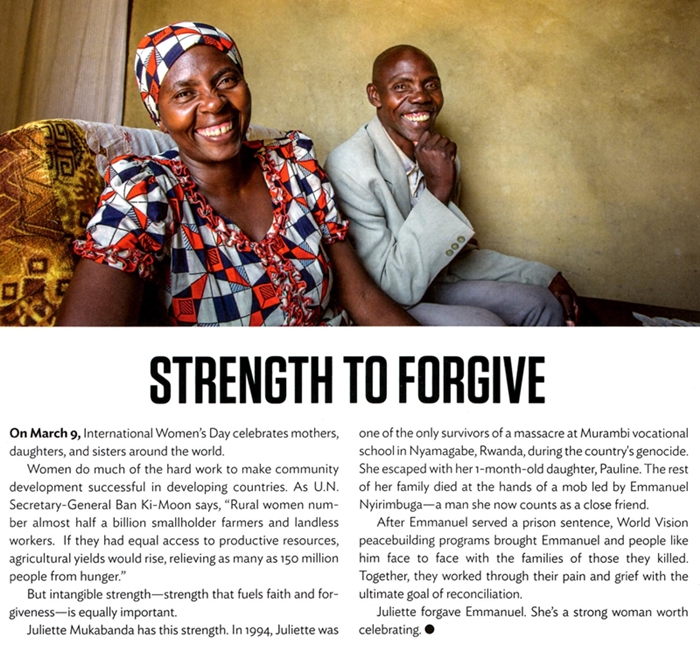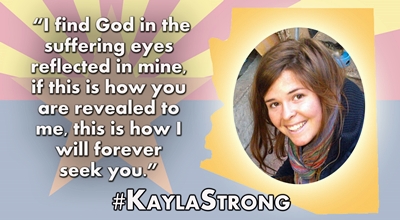Forgiveness Doesn’t Mean Elimination of Consequences
 In his book Unpacking Forgiveness, Chris Brauns wrote, “Forgiveness does not mean the elimination of all consequences. If you believe in the Lord Jesus Christ, then you are saved (Acts 16:31). As far as east is from the west, so far does God remove the transgressions of his children from them (Psalm 103:11-12). There is no condemnation for those who are in Christ (Romans 8:1). Nevertheless, these truths do not teach that those forgiven by God face no consequences for sin. On the contrary! This side of heaven, we will continue to work through the consequences of our rebellion against God. One of the most famous examples of this involves the consequences that David faced for his adultery with Bathsheba….” *
In his book Unpacking Forgiveness, Chris Brauns wrote, “Forgiveness does not mean the elimination of all consequences. If you believe in the Lord Jesus Christ, then you are saved (Acts 16:31). As far as east is from the west, so far does God remove the transgressions of his children from them (Psalm 103:11-12). There is no condemnation for those who are in Christ (Romans 8:1). Nevertheless, these truths do not teach that those forgiven by God face no consequences for sin. On the contrary! This side of heaven, we will continue to work through the consequences of our rebellion against God. One of the most famous examples of this involves the consequences that David faced for his adultery with Bathsheba….” *
Perhaps, like David, you’re grappling with painful consequences of your past. Remember, God can use those things to deter future sin; to teach you holiness and godliness; to equip you to counsel and to help others; and work all of it together for your good when you commit it all to Him. Put the sin under His blood, and put the consequences into His hands.
Expungement is a legal term that means “to remove from general review.” It means that an offense against the law is sealed in a court record and therefore not viewable in the future. In short, the record of the offense is removed from a person’s legal record. For practical purposes, expungement erases the record of legal offense—except for one thing: the consequences of the act. Removing the guilt and punishment of an offense is one thing; removing the consequences is another.
Such is the case with our sins before God. The guilt and punishment for our sins has been removed; Christ has taken upon Himself our sins; Christ has died in our place. But the consequences of our sins remain. To use another legal expression, you can’t “unring the bell.” Once something is said, heard, or done, it cannot be undone. That happened in the case of David’s sin of adultery. A loyal soldier lost his life, a woman and a king lost their honor, and they both lost their child. All were consequences of David’s sins. God forgave David his sins but did not take away the consequences (Psalm 51).
Instead of hoping you can ring the bell of sin and then unring it, better not to ring it at all.
~Dr. David Jeremiah (Turning Point, August 22 & 23, 2017)
*Chris Brauns, Unpacking Forgiveness (Wheaton, IL: Crossway, 2008), 49.
 Signs of Life
Signs of Life
All over the world, in seemingly safe settings—fields, jungles, pastures, farmlands—there are signs posted: “DANGER: DO NOT PROCEED.” The signs also explain why. With words and dramatic graphics, they say, “LAND MINES.” There are millions of land mines buried in former war zones all over the world, never dug up following the cessation of hostilities. And those mines kill or maim thousands of innocent civilians each year in locations where no warning signs are posted.
Those warning signs are not intended to deprive anyone of the pleasure of enjoying the land. They are meant to save lives, to warn of danger, to encourage people to take a different path. The signs do what the Law of God does: It warns us of choices and behaviors that are offensive to a holy God. For instance, the apostle Paul said he would never have known that coveting was offensive to God unless the Law said, “You shall not covet.”
God’s laws are signs of His grace and love. They are there to lead us in the path of righteousness and life.
~Dr. David Jeremiah (Turning Point, February 6, 2017)
Faith & Fear
Take two opposite thoughts like faith and fear. While we may vacillate rapidly between the two, as long as we remain focused on faith, fear has little access. In 2 Corinthians 10:5, Paul illustrated the principle of “bringing every thought into captivity to the obedience of Christ.” In his letter he referred to lies being spread about his apostleship—taking those lies captive to the truth. But the principle applies in all realms of life. And what is the purest way to remain focused on faith instead of fear? Prayer. Committing our concerns to God in prayer leaves no room for anxiety (Philippians 4:6-7).
~Dr. David Jeremiah (Turning Point, June 8, 2016)
 Peace in Worthy Service
Peace in Worthy Service
“Cheered by the presence of God, I will do at the moment, without anxiety, according to the strength which he shall give me, the work that his Providence assigns me. I will leave the rest without concern; it is not my affair…. I ought to consider the duty to which I am called each day, as the work that God has given me to do, and to apply myself to it in a manner worthy of his glory, that is to say, with exactness and peace.”
~French theologian Francois de la Mothe Fénelon
 Having a bad day, week, or year?
Having a bad day, week, or year?
Isaiah faced great bitterness, but in the course of time it turned into peace. His burdens became blessings. What others meant for evil, God turned to good.
Tracing this truth through the Scripture, we find it’s the universal experience for God’s children. Joseph was betrayed by his brothers and imprisoned in Egypt, but in God’s providence he came into leadership. Moses was rejected by Pharaoh and driven from the land, but it led to the deliverance of Israel. Job faced the wiles of the devil, but in the end he was twice as rich as before. Jesus was seized by His enemies and crucified, but He rose from the dead and established His Church. Paul was beaten and imprisoned in Philippi; but he planted a church there and wrote an enduring letter in which he said, “I want you to know, brethren, that the things which happened to me have actually turned out for the furtherance of the gospel” (Philippians 1:12).
Are you having a tough day? Trust God with it and wait for Him. In His providence, He will turn the trial into a testimony. ~Dr. David Jeremiah (Turning Point, April 28, 2016)
by Jon Warren, World Vision magazine, Spring 2016, page 7
It is with a heavy heart that we remember the eternal memory of Prescott’s Kayla Mueller who was taken from us one year ago this week. Kayla’s story of service, courage and love captured the hearts of people across the world. Kayla’s parents have requested, rather than to mourn for Kayla, we should celebrate her incredible life and her commitment to serving the most vulnerable in truth for peace and with compassion and justice. Please click HERE to learn more about how you can celebrate Kayla’s life, including giving your support to The Kayla’s Hands Foundation and the Prescott Kiwanis Foundation’s current effort to build a playground in her name.
~from Arizona Congressman Paul Gosar (Arizona District 4) – February 7, 2016
![]() Has there ever been a more turbulent era in American history? The two political parties seem hopelessly divided, our role in the flammable Middle East seems indefinable, the value of the unborn and marriage drift further from God’s ideal, and our fiscal indebtedness grows by the hour. Yet God remains uninvited into our situation. A nation that proclaims “In God We Trust” seems to put trust in everything but Him.
Has there ever been a more turbulent era in American history? The two political parties seem hopelessly divided, our role in the flammable Middle East seems indefinable, the value of the unborn and marriage drift further from God’s ideal, and our fiscal indebtedness grows by the hour. Yet God remains uninvited into our situation. A nation that proclaims “In God We Trust” seems to put trust in everything but Him.
The Old Testament prophets warned about trusting in man and man’s methods instead of in God. When Israel was tempted to appeal to Egypt for help against her enemies, the prophet Isaiah warned the leaders, “Now the Egyptians are men, and not God; and their horses are flesh, and not spirit” (Isaiah 31:3). Could there be any plainer distinction? When man finds himself in desperate situations, why would he call on others who are no greater than himself? Should we not call on the One who is God rather than relying on the abilities of man?
~Dr. David Jeremiah
![]() In 1957, Henry Fonda and Lee J. Cobb starred in a movie called 12 Angry Men. It’s an unusual film because it’s almost exclusively set in one room, the jury room of a courthouse. For an hour and a half, the cameras pan from face to face as the jurors debate the guilt or innocence of an eighteen-year-old accused of murder. Today 12 Angry Men is considered a classic, and is rated as one of the most inspiring films ever made.
In 1957, Henry Fonda and Lee J. Cobb starred in a movie called 12 Angry Men. It’s an unusual film because it’s almost exclusively set in one room, the jury room of a courthouse. For an hour and a half, the cameras pan from face to face as the jurors debate the guilt or innocence of an eighteen-year-old accused of murder. Today 12 Angry Men is considered a classic, and is rated as one of the most inspiring films ever made.
The twelve men who really changed the world weren’t angry, and they didn’t stay in one room—not even the Upper Room. Filled with the Spirit, they took the Gospel to the ends of the earth. When their critics saw them they “perceived that they were uneducated and untrained men …. And they realized they had been with Jesus” (Acts 4:13).
Only twelve—and one fell away and was replaced—but think of what Christ can do with a dozen ordinary people who deny themselves, take up their crosses, and follow Him. Think of what He can do with you.
~Dr. David Jeremiah
![]() Don’t think of Satan as a harmless cartoon character with a red suit and a pitchfork. He is very clever and powerful, and his unchanging purpose is to defeat God’s plans at every turn—including His plans for your life.
Don’t think of Satan as a harmless cartoon character with a red suit and a pitchfork. He is very clever and powerful, and his unchanging purpose is to defeat God’s plans at every turn—including His plans for your life.
~Billy Graham, in The Journey
![]() In September 2015, one of America’s largest evangelical seminaries refused future employment to a faculty member whose views on marriage and sexuality differed from Jesus’ teachings in Scripture. Imagine the months of research, deliberations, prayer, and counting of costs involved in such a decision. But in the end only one thing mattered: What saith the Lord?
In September 2015, one of America’s largest evangelical seminaries refused future employment to a faculty member whose views on marriage and sexuality differed from Jesus’ teachings in Scripture. Imagine the months of research, deliberations, prayer, and counting of costs involved in such a decision. But in the end only one thing mattered: What saith the Lord?
Christian leadership will always encounter spiritual opposition. Leaders and institutions that have remained faithful in an ever-changing and intolerant culture have done so by being persistent. They have stayed the course and stood firm. It’s what Nehemiah did when rebuilding the wall around Jerusalem. His workers were armed with weapons of war while they built. Some worked, some stood guard. Nehemiah did what had to be done in order to lead the people to accomplish God’s will.
If God gives you a task, expect opposition. Put on your spiritual armor (Ephesians 6:10-18) and be persistent and unwavering. Stand guard and stand firm.
~Dr. David Jeremiah






